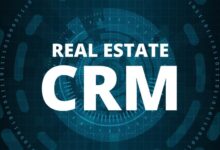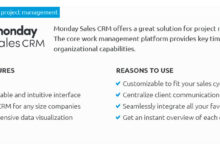Commercial real estate investment crm: 7 Powerful Reasons to Use a Commercial Real Estate Investment CRM
In today’s fast-paced commercial real estate market, staying ahead means more than just deals and dollars—it’s about relationships, data, and efficiency. That’s where a commercial real estate investment CRM becomes your ultimate game-changer.
What Is a Commercial Real Estate Investment CRM?

A Commercial Real Estate Investment CRM (Customer Relationship Management) system is a specialized software platform designed to help investors, brokers, fund managers, and development firms manage interactions with clients, investors, tenants, and partners throughout the investment lifecycle. Unlike generic CRMs, these platforms are tailored to the complex workflows, long sales cycles, and high-value transactions typical in commercial real estate.
These systems centralize contact information, track communication history, automate follow-ups, manage pipelines, and integrate with financial modeling and property management tools. The goal? To streamline operations, reduce manual work, and increase deal velocity—all while nurturing investor and client relationships with precision.
Core Features of a Commercial Real Estate Investment CRM
What sets a commercial real estate investment CRM apart from general-purpose tools like Salesforce or HubSpot is its domain-specific functionality. Key features include:
- Deal Pipeline Management: Visual dashboards to track acquisition, disposition, leasing, or development opportunities from lead to close.
- Investor Relationship Tracking: Detailed profiles for limited partners (LPs), institutional investors, and joint venture partners, including capital commitments and distribution history.
- Document Management: Secure storage for offering memorandums, PPMs, leases, and due diligence checklists.
- Automated Communication: Scheduled emails, SMS, and reminders to keep investors and prospects engaged.
- Integration with Financial Tools: Sync with Excel, Argus, MRI, Yardi, or accounting platforms for real-time financial tracking.
Platforms like VRE (Virtual Real Estate) and PropertyWare offer CRM modules built specifically for commercial investors, blending relationship management with asset performance analytics.
How It Differs from Residential or General CRMs
Residential real estate CRMs often focus on high-volume, short-cycle transactions with individual buyers and sellers. In contrast, a commercial real estate investment CRM handles fewer but far more complex deals involving multiple stakeholders—equity partners, lenders, legal teams, and property managers.
For example, while a residential CRM might track open houses and buyer preferences, a commercial version tracks capital calls, investor accreditation status, and lease expiration timelines. The depth of data, compliance requirements (like SEC regulations for private placements), and reporting needs are significantly higher.
As noted by the National Association of Realtors, commercial transactions average 6–12 months from initiation to close, requiring sustained engagement and meticulous record-keeping—something only a specialized CRM can support effectively.
“A commercial real estate investment CRM isn’t just a contact book—it’s the central nervous system of your investment operation.”
Why You Need a Commercial Real Estate Investment CRM
Managing commercial real estate investments without a CRM is like navigating a skyscraper with no elevator—you’ll get there, but it’ll take forever and cost you energy. The complexity of investor relations, asset tracking, and compliance demands a smarter approach.
Whether you’re a solo syndicator or a mid-sized private equity firm, a CRM tailored for commercial real estate investment helps you scale efficiently, reduce errors, and build stronger relationships. Let’s explore the key reasons why this tool is no longer optional—it’s essential.
1. Streamline Investor and Partner Communication
Investors expect timely, transparent updates. A commercial real estate investment CRM automates investor communications with personalized email campaigns, quarterly report distribution, and milestone notifications (e.g., “We’ve secured financing for Project Oakwood”).
You can segment investors by type (accredited vs. non-accredited), geography, or investment history, ensuring compliance and relevance. Automated drip campaigns nurture leads before a deal launches, warming up your investor pool months in advance.
For example, when launching a new multifamily syndication, you can trigger a sequence that sends:
- Week 1: Market overview and investment thesis
- Week 3: Pro forma financials and risk analysis
- Week 5: Virtual tour and Q&A invitation
- Week 7: Subscription agreement and wire instructions
This level of automation not only saves hours but ensures consistency and compliance across all investor touchpoints.
2. Centralize Deal and Asset Data
Without a CRM, deal data lives in spreadsheets, email threads, and Dropbox folders—scattered and vulnerable to loss or misinterpretation. A commercial real estate investment CRM consolidates everything: property details, financial models, due diligence checklists, and contact histories.
Imagine having a single dashboard where you can see:
- All active deals with status, expected IRR, and next steps
- Investor commitments per project
- Lease expirations and tenant performance metrics
- Document version history and audit trails
This centralization reduces onboarding time for new team members, improves collaboration, and minimizes costly oversights—like missing a capital call deadline or overlooking a tenant’s renewal option.
3. Enhance Due Diligence and Compliance
Commercial real estate investments are subject to strict regulatory requirements, especially when raising capital from investors. A CRM with compliance features helps you maintain records of investor accreditation, subscription agreements, and SEC filings (e.g., Form D).
Some platforms, like Fundrise, integrate compliance workflows directly into their CRM, ensuring that only qualified investors receive certain offerings. Audit-ready reporting becomes a one-click process, not a weekend of digging through files.
Additionally, GDPR and CCPA compliance for investor data is increasingly important. A robust CRM encrypts sensitive information and logs access, protecting both your firm and your clients.
“In commercial real estate, a single missed compliance step can derail an entire fundraise. A CRM acts as your legal and operational safety net.”
Top 5 Commercial Real Estate Investment CRM Platforms
Not all CRMs are created equal. For commercial real estate investors, the right platform must balance relationship management with financial and operational depth. Here are five leading solutions that stand out in the market.
1. VRE (Virtual Real Estate)
VRE is a cloud-based platform built specifically for commercial real estate professionals. Its CRM module integrates seamlessly with deal management, investor portals, and document storage.
Key features include:
commercial real estate investment crm – Commercial real estate investment crm menjadi aspek penting yang dibahas di sini.
- Customizable deal pipelines with drag-and-drop stages
- Investor accreditation tracking and compliance workflows
- Automated email and SMS campaigns
- Integration with Zoom and DocuSign for virtual closings
- Mobile app for on-the-go access
VRE is ideal for syndicators and small funds managing $10M–$100M in assets. Its user-friendly interface reduces training time, while its robust API allows integration with accounting software.
Learn more at vre.com.
2. Buildout
Buildout specializes in commercial leasing and tenant representation but has expanded into investment CRM functionality. It’s particularly strong for brokers managing both leasing and investment portfolios.
Features include:
- Lease abstraction and expiration tracking
- Client portal for real-time updates
- Marketing collateral generation (brochures, flyers)
- Team collaboration tools with task assignments
Buildout integrates with Salesforce and Google Workspace, making it a flexible choice for hybrid teams. Its visual deal board helps track multiple opportunities simultaneously.
Visit buildout.com for a demo.
3. Propertyware (by Yardi)
While primarily known for property management, Yardi’s Propertyware includes CRM features tailored for small to mid-sized commercial investors. It excels in tenant and lease management, with CRM capabilities for investor communication.
Strengths:
- Seamless integration with Yardi’s financial systems
- Automated rent roll and occupancy reporting
- Work order tracking and maintenance scheduling
- Investor portal for document sharing
Best suited for hands-on investors managing their own assets, Propertyware reduces the need for multiple software subscriptions.
Explore at propertyware.com.
4. Dealpath
Dealpath is a powerful acquisition and investment management platform with a robust CRM engine. Used by institutional investors and REITs, it offers enterprise-grade tools for tracking deals, managing approvals, and maintaining investor relationships.
Notable features:
- Custom workflows for investment committee approvals
- GIS mapping and site selection tools
- Advanced reporting with IRR, cash-on-cash, and NPV calculations
- Role-based access control for sensitive data
Dealpath integrates with Argus Enterprise and MRI, making it a top choice for firms using industry-standard financial modeling tools.
See how it works at dealpath.com.
5. HubSpot (Customized for CRE)
While not built specifically for commercial real estate, HubSpot’s flexibility allows firms to customize it into a powerful commercial real estate investment CRM. With the right templates and integrations, it can manage investor pipelines, email campaigns, and analytics.
Advantages:
- Free tier available for startups
- Extensive app marketplace (e.g., for e-signatures, calendars)
- Powerful marketing automation and lead scoring
- API access for custom development
Many boutique firms use HubSpot with CRE-specific add-ons like “Real Estate Pipeline Templates” to create a cost-effective solution.
Start at hubspot.com.
“The best CRM for you depends on your scale, asset type, and tech stack—but the worst CRM is no CRM at all.”
How to Choose the Right Commercial Real Estate Investment CRM
Selecting the right CRM isn’t just about features—it’s about fit. A platform that works for a $500M REIT may overwhelm a solo syndicator. Here’s a step-by-step guide to making the right choice.
Assess Your Business Needs
Start by mapping your current workflow:
- How many deals do you manage annually?
- How many investors or LPs are in your network?
- What are your biggest pain points? (e.g., missed follow-ups, disorganized documents)
- Do you need investor portals, compliance tracking, or financial integration?
If you’re raising capital regularly, prioritize platforms with investor accreditation tracking and subscription management. If you’re asset-heavy, focus on lease and tenant management features.
Evaluate Integration Capabilities
A CRM should connect with your existing tools. Ask:
- Does it integrate with your accounting software (e.g., QuickBooks, Yardi)?
- Can it sync with your email and calendar (Gmail, Outlook)?
- Does it support e-signatures (DocuSign, PandaDoc)?
- Can it pull data from Argus or Excel models?
Platforms like Dealpath and VRE offer deep integrations, reducing double data entry and errors.
commercial real estate investment crm – Commercial real estate investment crm menjadi aspek penting yang dibahas di sini.
Test for User Experience and Training
No matter how powerful a CRM is, it’s useless if your team won’t use it. Request a demo and involve your team in the evaluation.
Look for:
- Intuitive interface with minimal clicks to common tasks
- Mobile accessibility
- Availability of training resources (videos, webinars, support)
- Customer support responsiveness
Some vendors offer onboarding specialists to help migrate data and set up workflows—this can be a game-changer for busy teams.
“Adoption is the true measure of a CRM’s success. Choose one your team will actually use.”
Maximizing ROI with Your Commercial Real Estate Investment CRM
Buying a CRM is just the first step. To truly unlock its value, you need a strategy for implementation and optimization. Here’s how to get the most out of your investment.
1. Clean and Migrate Your Data
Garbage in, garbage out. Before importing contacts, audit your existing lists. Remove duplicates, update outdated emails, and standardize naming conventions (e.g., “John Smith, LP” vs. “John Smith – Investor”).
Most CRMs offer CSV import tools. Use them wisely—map fields correctly to avoid misaligned data. For example, ensure “Investment Amount” doesn’t end up in the “Phone Number” column.
Consider starting with a pilot group—your top 50 investors—before scaling to your full database.
2. Automate Key Workflows
Leverage automation to save time and reduce human error. Set up:
- Post-meeting follow-up sequences
- Quarterly investor update emails
- Lease expiration alerts (60/30/15 days out)
- Capital call reminders
For example, when a new investor signs up, trigger a workflow that:
- Sends a welcome email with onboarding checklist
- Schedules a 15-minute intro call
- Adds them to the “Accredited Investors” list
- Logs the subscription agreement in the document vault
This end-to-end automation can cut onboarding time by 70%.
3. Use Analytics to Drive Decisions
A commercial real estate investment CRM isn’t just for storage—it’s a decision-making engine. Use built-in reports to:
- Identify your most active investors
- Track conversion rates from lead to commitment
- Analyze deal pipeline velocity
- Forecast capital raise timelines
For instance, if data shows that 80% of your commitments come from email campaigns sent on Tuesdays at 10 AM, optimize your schedule accordingly.
Advanced platforms offer predictive analytics, suggesting which investors are most likely to commit based on past behavior.
“Data doesn’t lie. Your CRM holds the insights to scale smarter, not harder.”
Common Mistakes to Avoid with Commercial Real Estate Investment CRM
Even the best CRM can fail if implemented poorly. Here are the most common pitfalls and how to avoid them.
1. Underutilizing the Platform
Many firms buy a CRM but only use 20% of its features. They might track contacts but ignore automation, analytics, or investor portals.
Solution: Assign a CRM champion on your team. This person should explore all features, attend vendor training, and share best practices. Schedule quarterly reviews to assess usage and identify untapped opportunities.
2. Poor Data Hygiene
Letting data decay—outdated phone numbers, incorrect investment amounts, missing accreditation status—undermines trust and compliance.
Solution: Implement a data governance policy. Require team members to update records after every interaction. Use CRM validation rules (e.g., “Accreditation Status” is required for investors).
3. Skipping Integration
Using a CRM in isolation creates silos. If your financial model lives in Excel and your CRM doesn’t sync, you’ll waste time copying numbers manually.
Solution: Prioritize integration during selection. Use Zapier or native APIs to connect your CRM with accounting, email, and modeling tools.
4. Ignoring Mobile Access
Commercial real estate is mobile. You’re on site visits, meetings, and calls. If your CRM isn’t accessible on your phone, you’ll fall behind.
Solution: Choose a platform with a robust mobile app. Test it during your trial period. Can you update a deal status, send an email, or view investor notes from your phone?
“A CRM is only as good as its daily usage. Make it easy, make it mobile, make it mandatory.”
The Future of Commercial Real Estate Investment CRM
The CRM landscape is evolving rapidly, driven by AI, automation, and investor expectations. Here’s what’s on the horizon for commercial real estate investment CRM platforms.
commercial real estate investment crm – Commercial real estate investment crm menjadi aspek penting yang dibahas di sini.
AI-Powered Investor Matching
Future CRMs will use artificial intelligence to analyze investor behavior, preferences, and risk tolerance to recommend the best-fit deals. Imagine a system that suggests, “Investor X is 87% likely to commit to a Class A office property in Austin based on past investments.”
Platforms like Reonomy are already using AI to enrich property and owner data—next step is investor intelligence.
Blockchain for Investor Verification
Blockchain technology could revolutionize investor accreditation and capital movement. A CRM could verify an investor’s status on a decentralized ledger, reducing paperwork and fraud risk.
Smart contracts might automate distributions, triggering payments when lease income hits the account—no manual checks required.
Enhanced Virtual Collaboration
As remote work persists, CRMs will integrate deeper with virtual meeting tools. Imagine a CRM that records Zoom calls, transcribes key points, and auto-logs action items—all within the investor’s profile.
3D property tours and AR walkthroughs could be embedded directly in deal records, giving investors immersive previews without leaving the platform.
“The future CRM won’t just manage relationships—it will anticipate needs, automate decisions, and create seamless investor experiences.”
Real-World Success Stories
Theoretical benefits are great, but real results matter more. Here are two case studies showing how firms transformed their operations with a commercial real estate investment CRM.
Syndication Firm Scales 3x with VRE
A boutique real estate syndicator in Denver managed 12 multifamily deals with a team of three. Investor communication was chaotic—emails lost, updates delayed, commitments misrecorded.
After implementing VRE, they:
- Automated quarterly investor reports, saving 20 hours/month
- Increased capital raise speed by 40% with drip campaigns
- Reduced onboarding time from 5 days to 2 hours
Within 18 months, they scaled to 35 deals and raised $75M in equity—without adding staff.
Institutional REIT Improves Compliance with Dealpath
A mid-sized REIT managing $400M in assets struggled with audit readiness and investment committee workflows. Approvals took weeks due to scattered emails and document versions.
Dealpath enabled them to:
- Create standardized approval workflows with digital signatures
- Centralize all due diligence documents with version control
- Generate SEC-compliant reports in minutes
They reduced approval time by 60% and passed their last audit with zero findings.
What is a commercial real estate investment CRM?
A commercial real estate investment CRM is a specialized software platform that helps investors, brokers, and fund managers manage relationships with investors, partners, and tenants. It includes features like deal tracking, investor communication, document management, and compliance tools tailored to the complexities of commercial real estate transactions.
How does a CRM help in raising capital for real estate deals?
A CRM streamlines investor outreach by automating email campaigns, tracking investor interest, managing subscription agreements, and maintaining accreditation records. This ensures timely, compliant, and personalized communication, increasing the speed and success rate of capital raises.
Can small investors benefit from a commercial real estate investment CRM?
Absolutely. Even solo syndicators or small firms can benefit from a CRM by organizing investor lists, automating follow-ups, and maintaining professional communication. Many platforms offer affordable or free tiers, making CRM technology accessible at any scale.
What should I look for in a commercial real estate investment CRM?
Key features to look for include investor relationship tracking, deal pipeline management, document storage, compliance tools, integration with financial software (e.g., Argus, Yardi), mobile access, and automation capabilities. Ease of use and vendor support are also critical for long-term success.
Are there free commercial real estate investment CRM options?
While fully featured CRE-specific CRMs are typically paid, platforms like HubSpot offer free tiers that can be customized for real estate use. However, for advanced compliance, financial integration, and investor portal features, paid solutions like VRE or Dealpath are recommended.
commercial real estate investment crm – Commercial real estate investment crm menjadi aspek penting yang dibahas di sini.
Choosing the right commercial real estate investment CRM is no longer a luxury—it’s a strategic necessity. From automating investor communications to centralizing deal data and ensuring compliance, a specialized CRM empowers investors to scale efficiently and professionally. Whether you’re a startup syndicator or a seasoned REIT, the right platform can transform how you manage relationships, close deals, and grow your portfolio. The future of real estate investing is digital, data-driven, and relationship-focused. With a powerful CRM, you’re not just keeping up—you’re leading the charge.
Further Reading:



